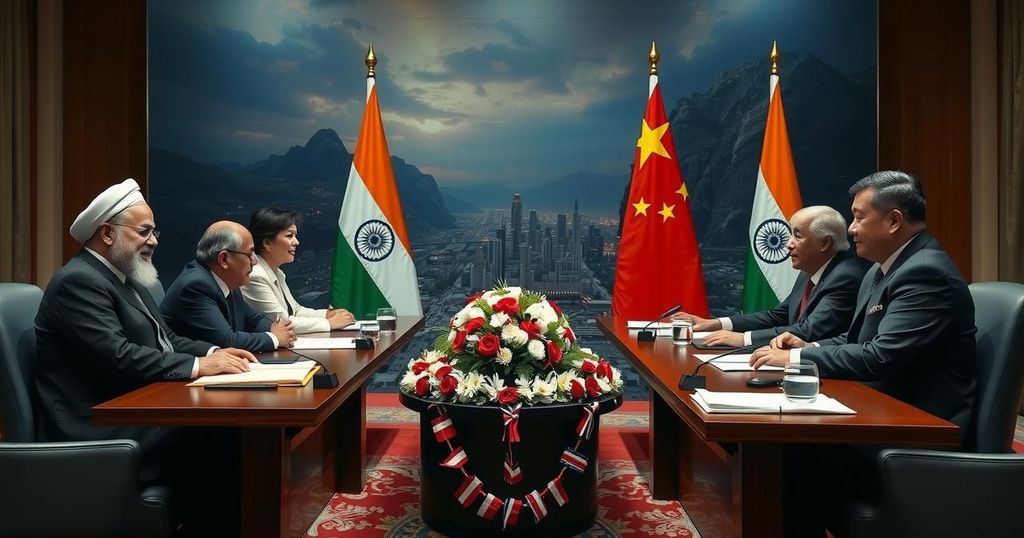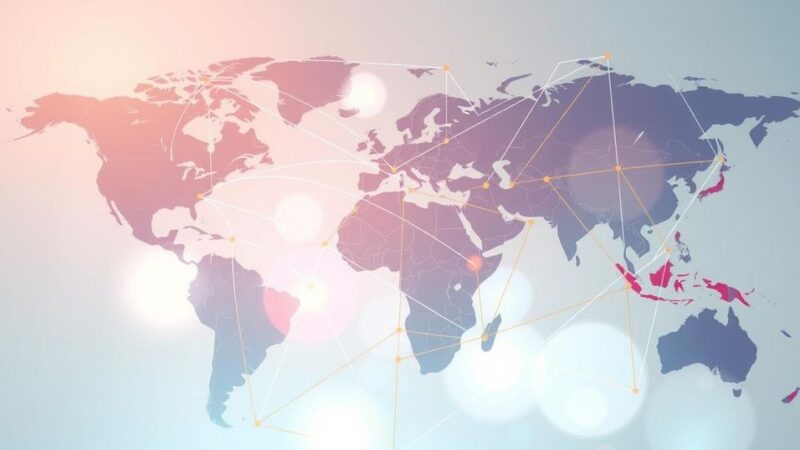President Vladimir Putin hosted a significant BRICS Summit, inviting multiple countries to explore a “new world order” away from Western hegemony while discussing the reduction of dollar reliance amidst growing geopolitical tensions. The summit aimed to boost economic cooperation among member states and address challenges imposed by Western sanctions, with a focus on establishing a more balanced international financial system.
This week, Russian President Vladimir Putin convened over two dozen nations in Kazan, Russia, to engage in discussions aimed at establishing a “new world order” that is less reliant on Western influence and the dominance of the U.S. dollar. This gathering marks a significant global platform for Putin, being his largest international engagement since the onset of the Ukraine conflict in 2022. The BRICS Summit, taking place from Tuesday through Thursday, seeks to forge deeper economic ties and cooperation among member countries, allowing them to mitigate the effects of sanctions imposed by the West by reducing dependence on the dollar. Putin asserted at the summit, “The dollar is being used as a weapon. We really see that this is so. I think that this is a big mistake by those who do this.” The summit also featured an important moment of diplomatic efforts, as Chinese President Xi Jinping and Indian Prime Minister Narendra Modi demonstrated a commitment to improving relations following a prolonged military standoff over border disputes. The BRICS group, which originally included Brazil, Russia, India, China, and South Africa, has recently expanded with the addition of countries like Iran, Egypt, Ethiopia, the United Arab Emirates, and Saudi Arabia. Potential applications for membership have also been made by Turkey, Azerbaijan, Malaysia, and Pakistan, indicating the bloc’s growing global influence, now representing half of the world’s population and 35% of global output. While Russia is actively promoting an anti-Western narrative at this summit, some members, such as Brazil, India, and South Africa, are advocating for a more conciliatory approach. They perceive the alliance as an opportunity to reshape international institutions, like the World Bank and the International Monetary Fund, to better serve the developing world. However, achieving an alternative to the SWIFT payment system remains complicated, as BRICS nations have yet to present a definitive strategy for transitioning away from the dollar. Furthermore, Iranian President Masoud Pezeshkian emphasized that the development of BRICS must exceed mere dialogue, pointing out that many of its objectives remain unachieved even after 15 years. He criticized the West’s heavy reliance on sanctions as a means to impose their views globally. The relative share of dollar assets in global foreign currency reserves has decreased significantly in recent decades, from 70% in 1999 to approximately 59% currently. This trend raises concerns regarding the future of the dollar as the world’s dominant currency, with former President Donald Trump noting the strategic implications of such a shift, claiming that it would signify a serious decline in U.S. global standing.
The BRICS Summit serves as a pivotal platform for several emerging economies to discuss collaborative strategies aimed at countering the hegemony of Western powers, particularly the United States. Historically conceptualized by analysts to illustrate the rising economic clout of nations like Brazil, Russia, India, China, and South Africa, the group has since expanded to include additional nations striving for enhanced economic solidarity. The summit activity reflects not only geopolitical shifts but also the ongoing challenges in global economic governance, particularly in response to the unilateral imposition of sanctions and the dominance of the U.S. dollar.
In summary, the BRICS Summit signifies a concerted effort among member nations to challenge Western financial dominance and explore alternative economic frameworks. With significant participation from various nations, including Iran, China, and India, the summit showcases a willingness to address collective economic issues and redefine global power dynamics. However, achieving concrete outcomes and a unified strategy towards an alternative to the dollar remains an ongoing challenge for the coalition.
Original Source: www.foxnews.com






